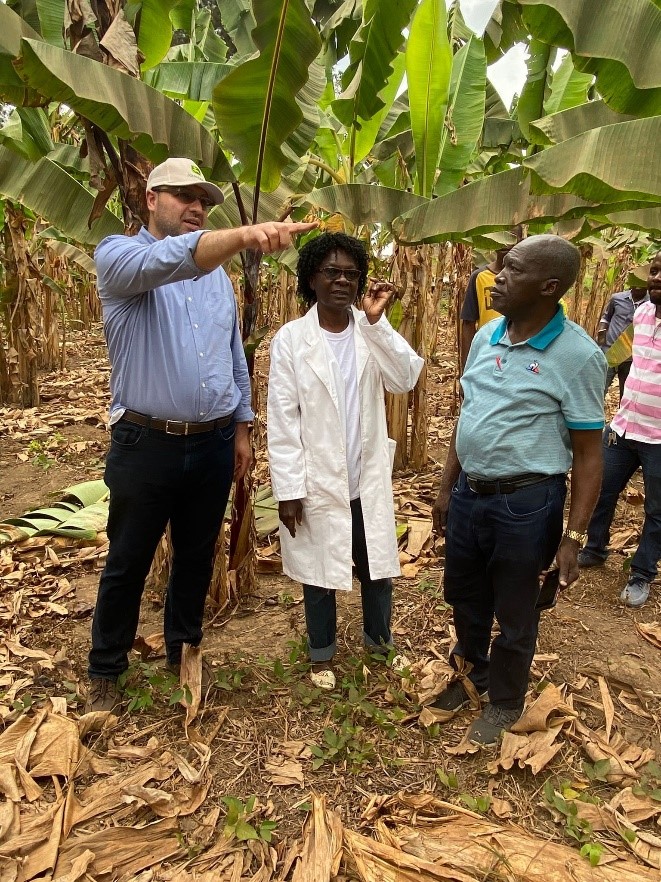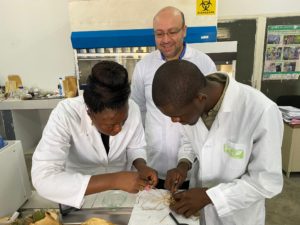
Dr. Behnam Khatabi, associate professor at the University of Maryland Eastern Shore (UMES), trained scientists at the Plant Clinic International (PCi) and the National Institute for the Study and Agronomic Research (INERA) in the Democratic Republic of Congo (DRC) in the fall of 2022. Organized by the 1890 Universities Center of Excellence for Global Food Security and Defense (CEGFSD) with the USAID Current and Emerging Threat to Crops (CETC) Innovation Lab’s funds, this training opportunity focused on reviewing various banana plantain and cassava’s diseases, explaining the cost-effective diseases management tools for new and emerging plant pests and diseases in DRC, and isolating RNA and DNA from different plants to identify bacterial and fungal pathogens from different plant sources. “This is my first visit to Africa, and especially to DRC, to carry out workshops, train scientists, meet government officials, and visit farms.. Based on my educational and research training, I provided necessary skills in understanding plant pathological problems facing agriculture, food safety and security in DRC” said Dr. Khatabi.
All the workshops were followed by hands-on activities in the laboratories and at the farms.
Dr. Khatabi had the opportunity to set up a plant health workshop at the PCi lab aimed at providing hands-on experience on cutting-edge technology in the field of molecular and plant pathology. He conducted brainstorming sessions involving students, faculty, and administrators from INERA and the Plant Health Clinic to develop plans for collaborative research in plant pathology. During this workshop, the participants worked side-by-side with him to run experiments and learn about the techniques in plant pathology and rapid detection methods of plant diseases.

Farm visits (banana plantain and cassava) were also organized at the INERA Mvuazi’s facilities to learn first-hand disease detection, monitoring, and control demonstrations in the field. “During these visits, I had the opportunity to share my skills in plant disease diagnosis and plant disease management programs as well as potential alternative management options to help prevent and manage plant diseases. It is incredibly eye opening for me to see the real problems and help farmers fight crop losses and help them to adopt new farming practices to boost their harvests and income. I am pleased that I did it to help and train the next generation of plant pathologists in Africa,” said Dr. Khatabi.

